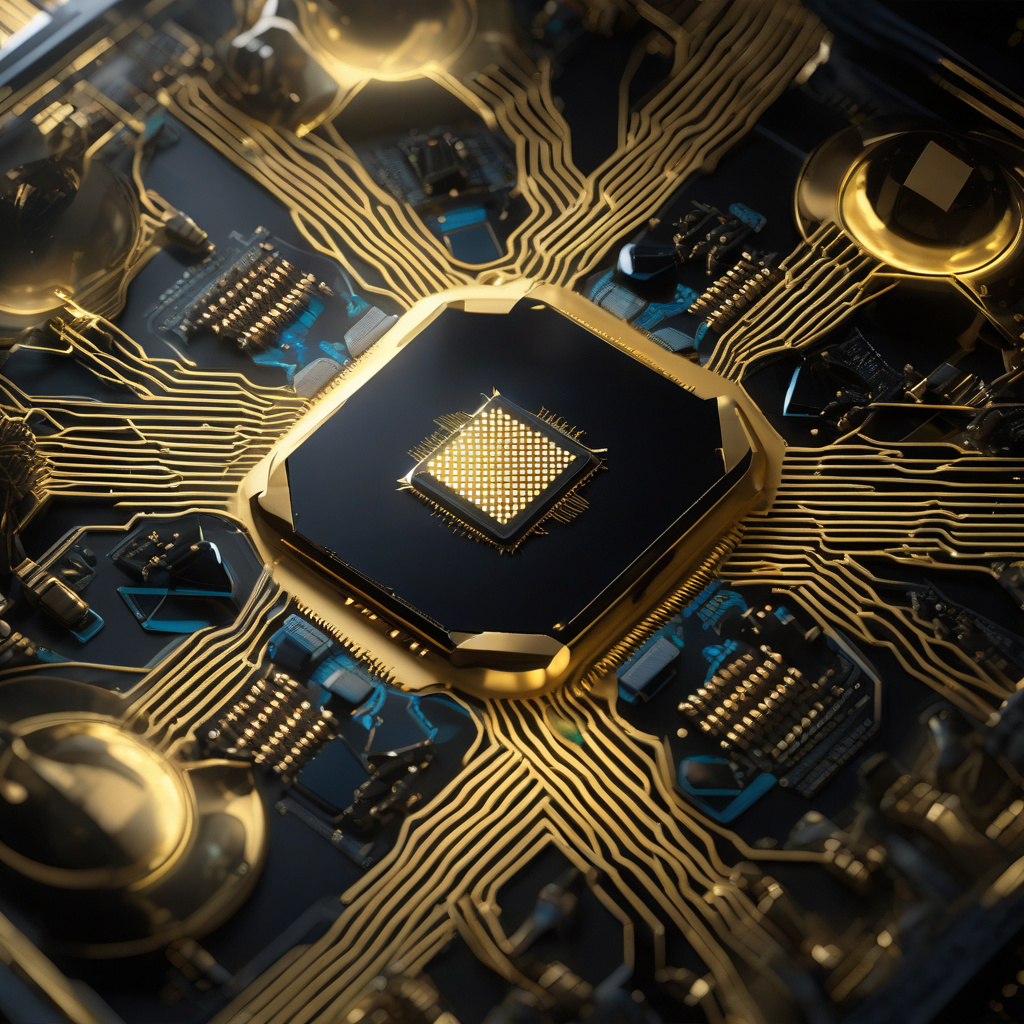New Ion Trap Chip Paves Way for Scalable Quantum Systems
A recent breakthrough by a team in Maryland has confirmed quantum behavior during live computation, signaling a significant step forward in the development of scalable quantum systems. This achievement revolves around the creation of a new ion trap chip that has the potential to revolutionize the field of quantum computing.
Ion trap technology has long been heralded as a promising avenue for the realization of practical quantum computers. By trapping ions and manipulating their quantum states, researchers can harness the power of quantum superposition and entanglement to perform complex calculations at speeds far beyond the capabilities of classical computers.
The key innovation of the Maryland team’s ion trap chip lies in its ability to sustain quantum coherence over extended periods of time, a critical requirement for building large-scale quantum systems. This newfound stability opens the door to overcoming one of the most significant challenges facing quantum computing – the fragile nature of quantum states.
In practical terms, the successful demonstration of quantum behavior during live computation means that researchers are one step closer to realizing the full potential of quantum computers. These systems could revolutionize fields such as cryptography, drug discovery, and optimization problems by solving calculations that are currently intractable with classical hardware.
Moreover, the scalability of the new ion trap chip offers a pathway towards building larger quantum systems capable of tackling increasingly complex problems. As more qubits – the basic units of quantum information – can be reliably interconnected and manipulated, the computational power of quantum computers grows exponentially.
One of the key advantages of ion trap technology is its high degree of controllability and precision. By individually addressing and manipulating ions, researchers can perform operations with unprecedented accuracy, reducing the error rates that have plagued other quantum computing approaches.
The confirmation of quantum behavior during live computation represents a significant milestone in the journey towards practical quantum computing. It showcases the progress that has been made in overcoming the technical challenges that have long hindered the development of scalable quantum systems.
As researchers continue to refine ion trap technology and explore new avenues for improving quantum coherence and error correction, the possibilities for quantum computing are boundless. The new ion trap chip developed by the Maryland team is a testament to the power of interdisciplinary collaboration and innovative engineering in pushing the boundaries of what is possible in the realm of quantum information processing.
In conclusion, the recent confirmation of quantum behavior during live computation by the Maryland team marks a pivotal moment in the advancement of scalable quantum systems. With the development of the new ion trap chip, researchers are closer than ever to realizing the transformative potential of quantum computing across a wide range of applications.
#QuantumComputing, #IonTrapTechnology, #ScalableSystems, #MarylandResearch, #QuantumBreakthrough
